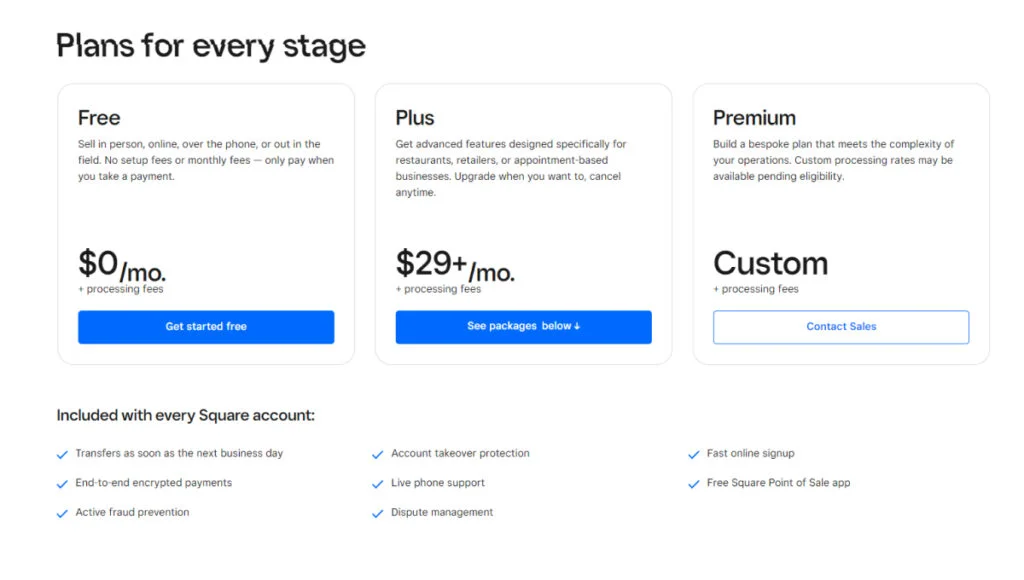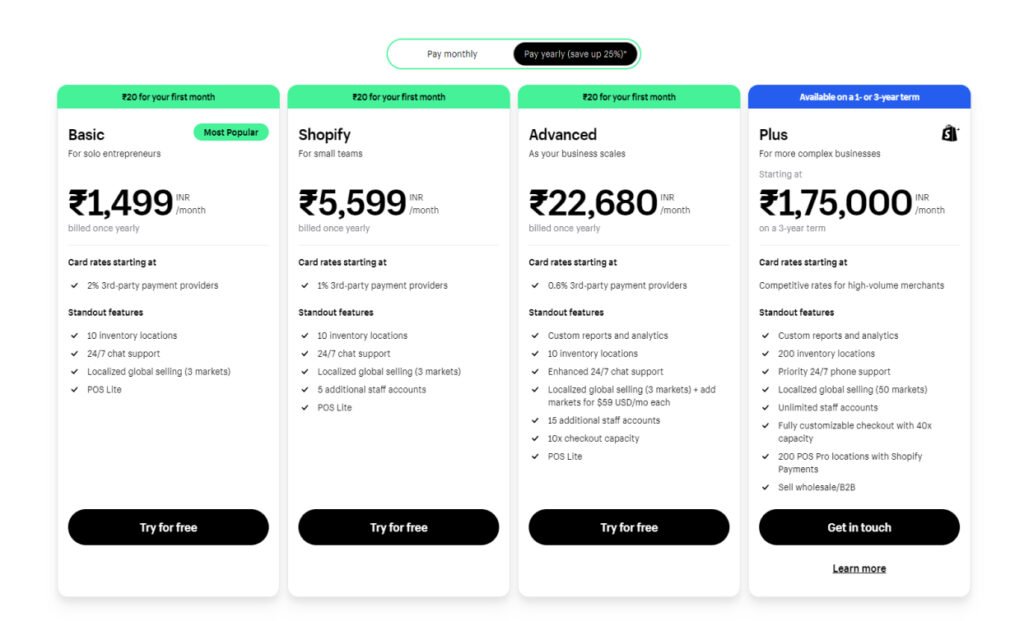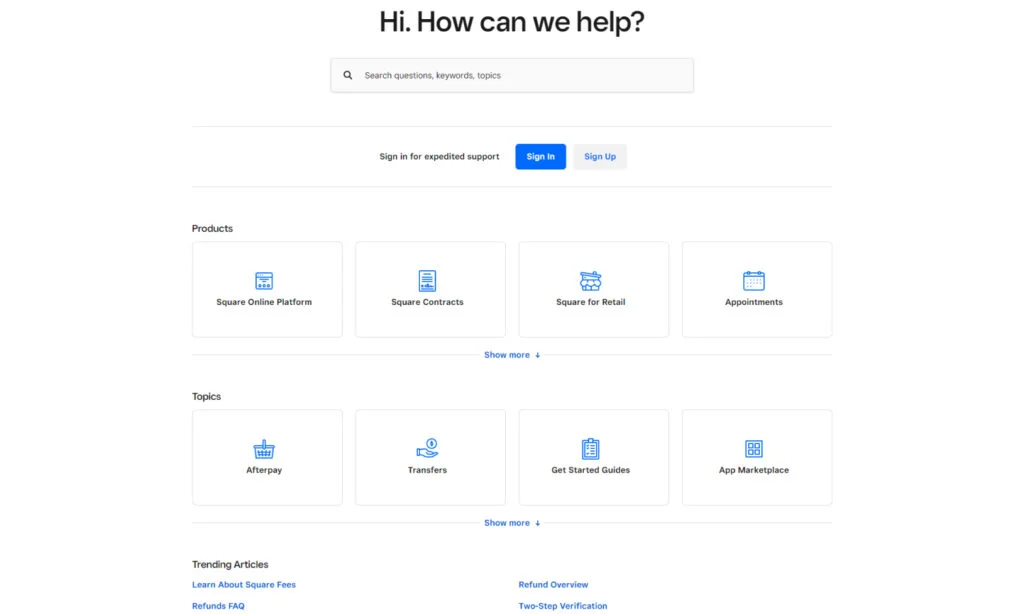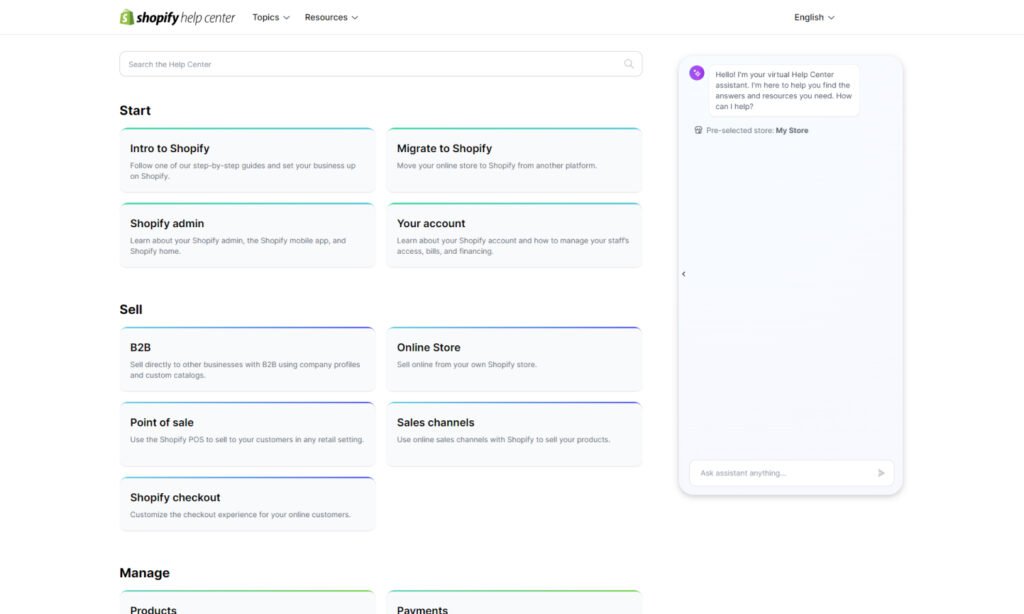Imagine you’re gearing up to launch your dream online store. It’s like preparing for a high-stakes showdown, with Square and Shopify standing as your potential partners. The stakes are high, and choosing the right platform could make or break your e-commerce success. But which platform is the ultimate champion for your venture?
In this comprehensive guide, we’ll be your strategic advisor, analyzing every critical aspect of Square and Shopify. From pricing plans to e-commerce features, we’ll leave no stone unturned. You’ll gain insights into their user interfaces, customization options, and scalability.
We’ll dive deep into their e-commerce tools, such as payment processing, inventory management, and customer support. By the end of this guide, you’ll be armed with all the information you need to make an informed decision.
Whether you’re a seasoned entrepreneur or a first-time online store owner, you’ll be equipped to choose the perfect platform to dominate the e-commerce arena and elevate your online store to new heights.
Square vs Shopify | Comparison in 2024 (Table of contents)
- Square and Shopify: An Overview
- What is a Square?
- What is Shopify?
- Square vs. Shopify: Pricing
- Square vs. Shopify: E-commerce Features
- Square vs. Shopify: Payment Processing
- Square vs. Shopify: Inventory Management
- Square vs. Shopify: Customer Support
- FAQ
1. Square and Shopify: An Overview

Square and Shopify are both leading e-commerce platforms, but their approaches differ. Square is a payment processing company that offers a range of e-commerce tools, including website building and inventory management. Shopify, on the other hand, is a dedicated e-commerce platform that focuses on providing a comprehensive suite of features for building and managing online stores.
This in-depth comparison of Square and Shopify will help you make an informed decision. We’ll explore the core functionalities of each platform, highlighting their strengths and weaknesses, to help you determine which one best suits your e-commerce needs.
Here’s what we’ll cover:
- Foundational Differences: We’ll delve into the origins and core focus of Square and Shopify, understanding if they’re payment processing companies with added e-commerce features or dedicated e-commerce platforms.
- Pricing Plans: We’ll compare the pricing structures of Square and Shopify, helping you choose the most cost-effective solution for your budget.
- E-commerce Features: We’ll analyze the e-commerce tools offered by Square and Shopify, determining which platform offers more comprehensive features for building and managing online stores.
- Stay tuned for the next chapter, where we’ll dive deeper into the pricing structures, key features, and which platform emerges victorious for different e-commerce scenarios!
2. What is Square?
3. What is Shopify?
Shopify is a dedicated e-commerce platform renowned for its comprehensive suite of features designed to help you build and manage an online store seamlessly. Here’s a detailed look at its key features:
E-commerce Website Building:
Shopify provides powerful website-building tools that allow you to create and customize your online store with ease. With a wide range of themes and templates specifically designed for e-commerce, you can design a visually appealing and functional store that aligns with your brand identity.
Payment Processing:
Shopify offers integrated payment processing services that support a variety of online transactions. This includes credit card processing and multiple payment gateways, ensuring your customers have a smooth and secure checkout experience.
Inventory Management:
Shopify’s robust inventory management tools help you track and manage your product inventory efficiently. You can monitor stock levels, handle order fulfillment, and automate reordering processes to ensure your store runs smoothly and your products are always available.
Shopify is a popular choice for businesses of all sizes, from small startups to large enterprises, due to its scalability and extensive feature set. Its comprehensive e-commerce capabilities, user-friendly interface, and dedicated customer support make it a preferred platform for building and managing successful online stores.
4. Square vs. Shopify: Pricing
Square Pricing Offers

Square offers a range of pricing plans for its e-commerce tools, ranging from $0 to $72 per month. Let’s explore what each plan offers:
- Free ($0/month): This plan is ideal for businesses just starting and includes basic e-commerce features like website building and online payments.
- Professional ($12/month): Perfect for small businesses, this plan includes additional features like inventory management and customer support.
- Premium ($72/month): Designed for growing businesses, this plan includes everything in the Professional plan, plus advanced features like advanced reporting and analytics.
Shopify Pricing Offers

Shopify offers a range of pricing plans for its e-commerce platform, ranging from $29 to $299 per month. Let’s explore what each plan offers:
- Basic ($29/month): This plan is ideal for new businesses and includes basic e-commerce features like website building and online payments.
- Standard ($79/month): Perfect for small businesses, this plan includes additional features like inventory management and customer support.
- Advanced ($299/month): Designed for growing businesses, this plan includes everything in the Standard plan, plus advanced features like advanced reporting and analytics.
5. Square vs. Shopify: E-commerce Features
Square provides a range of e-commerce features designed to support small businesses and entrepreneurs. These include:
- Website-Building Tools: Square offers user-friendly website-building tools that allow you to create and customize your online store without any coding knowledge. The drag-and-drop functionality and variety of templates make it easy to design a professional-looking site.
- Payment Processing Services: Square provides seamless payment processing for both online and in-person transactions. This includes credit card processing, contactless payments, and integrated point-of-sale (POS) solutions.
- Inventory Management Tools: Square’s inventory management features help you track and manage your product inventory. You can monitor stock levels, track sales data, and automate reordering processes to ensure you never run out of stock.
While Square’s e-commerce features are functional and well-integrated, they may not be as comprehensive as those offered by Shopify.
Shopify E-commerce Features
Shopify is renowned for its extensive and robust e-commerce features, tailored to businesses of all sizes. These include:
- Website-Building Tools: Shopify provides powerful website-building tools with a wide range of themes and templates specifically designed for e-commerce. These tools allow you to create a visually appealing and highly functional online store with ease.
- Payment Processing Services: Shopify offers integrated payment processing services, supporting a variety of online transactions. This includes credit card processing and multiple payment gateways, ensuring a smooth and secure checkout experience for your customers.
- Inventory Management Tools: Shopify’s inventory management tools are comprehensive, allowing you to efficiently track and manage your product inventory. You can monitor stock levels, handle order fulfillment, and automate reordering processes.
- Abandoned Cart Recovery: Shopify includes an abandoned cart recovery feature, which helps you recover lost sales by sending automated emails to customers who leave items in their cart without completing the purchase.
- Multi-Channel Selling: Shopify supports multi-channel selling, allowing you to sell your products on various platforms such as social media, online marketplaces, and in-person through POS systems.
Shopify’s e-commerce features are more robust than Square’s, providing additional tools and functionalities that can help you grow and manage your online store more effectively. This makes Shopify a preferred choice for businesses looking for a comprehensive and scalable e-commerce platform.
6. Square vs. Shopify: Payment Processing
7. Square vs. Shopify: Inventory Management
Square Inventory Management
Square provides inventory management tools that help businesses effectively track and manage their product inventory. Key features include:
- Stock Level Tracking: Square allows you to monitor your stock levels in real-time, ensuring you always know what products are available.
- Reordering: Square’s system helps you manage reordering by setting up alerts when stock levels are low, helping you avoid running out of popular items.
Square’s inventory management tools are designed to be simple and intuitive, making it easy for small businesses to keep track of their inventory without getting overwhelmed by complexity.
Shopify Inventory Management
Shopify offers a more comprehensive set of inventory management tools that cater to the needs of growing businesses. Key features include:
- Stock Level Tracking: Similar to Square, Shopify provides real-time tracking of stock levels, ensuring you have up-to-date information on product availability.
- Order Fulfillment: Shopify’s inventory management includes tools for managing order fulfillment, helping you process and ship orders efficiently.
- Automatic Stock Updates: Shopify offers automatic stock updates that sync across all sales channels, reducing the risk of overselling and ensuring consistency.
- Order Tracking: Shopify’s system includes detailed order tracking, allowing you to monitor the status of each order from purchase to delivery.
Shopify’s inventory management tools are more robust than Square’s, offering additional features that support complex inventory needs and multi-channel selling. This makes Shopify a better choice for businesses looking for advanced inventory management capabilities.
8. Square vs. Shopify: Customer Support
Square Customer Support

Square offers customer support via phone, email, and live chat, with 24/7 support available for technical issues. Square also has a comprehensive help center with articles, tutorials, and FAQs to help you troubleshoot issues on your own.
Shopify Customer Support

Shopify offers customer support via phone, email, and a help center with articles, tutorials, and FAQs. Shopify’s customer support is known for being responsive and helpful, with support representatives available to assist you with any issues you may encounter.
8. Frequently Asked Questions (FAQ)
Q: What is the difference between Square and Shopify?
A: Square is primarily a payment processing company that offers e-commerce tools, while Shopify is a dedicated e-commerce platform that provides a comprehensive suite of features for building and managing online stores.
Q: How do Square and Shopify compare in terms of pricing?
A: Square offers pricing plans ranging from $0 to $72 per month for its e-commerce tools, while Shopify offers pricing plans ranging from $29 to $299 per month for its e-commerce platform. Pricing may vary based on features and functionality.
Q: Which platform should I choose between Square and Shopify for my online store?
A: If you prioritize simplicity and ease of use, Square may be the right choice for your online store. However, if you value comprehensive e-commerce features and scalability, Shopify may be a better fit.
Q: Can you explain the difference in usage between Square and Shopify?
A: Square is commonly used for payment processing services with added e-commerce features, while Shopify is specifically designed for creating and managing online stores focusing on comprehensive e-commerce features.
Q: What are the advantages of using Square over Shopify?
A: Square offers simple and intuitive payment processing services with added e-commerce features, making it a convenient choice for businesses looking for a straightforward solution. However, Square may not offer as many e-commerce features as Shopify.
Q: How does Shopify compare to Square in terms of design and flexibility?
A: Shopify offers a wide range of themes and templates designed specifically for e-commerce, giving users more control over the design of their online stores. Square, on the other hand, may offer more limited design options.
Q: Can you give an overview of the comparison between Square and Shopify?
A: In summary, Square is a payment processing company with e-commerce tools, while Shopify is a dedicated e-commerce platform. Square is a convenient choice for businesses looking for simple payment processing and e-commerce tools, while Shopify offers a comprehensive suite of e-commerce features for businesses of all sizes.





